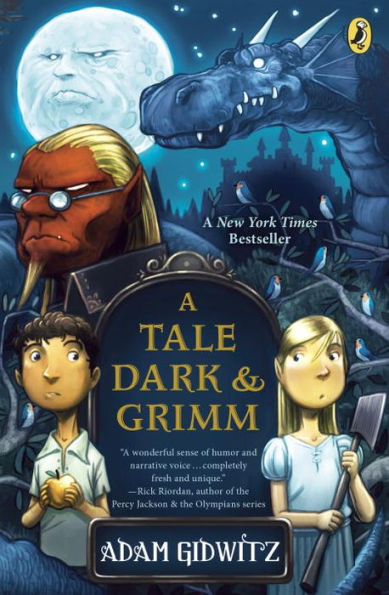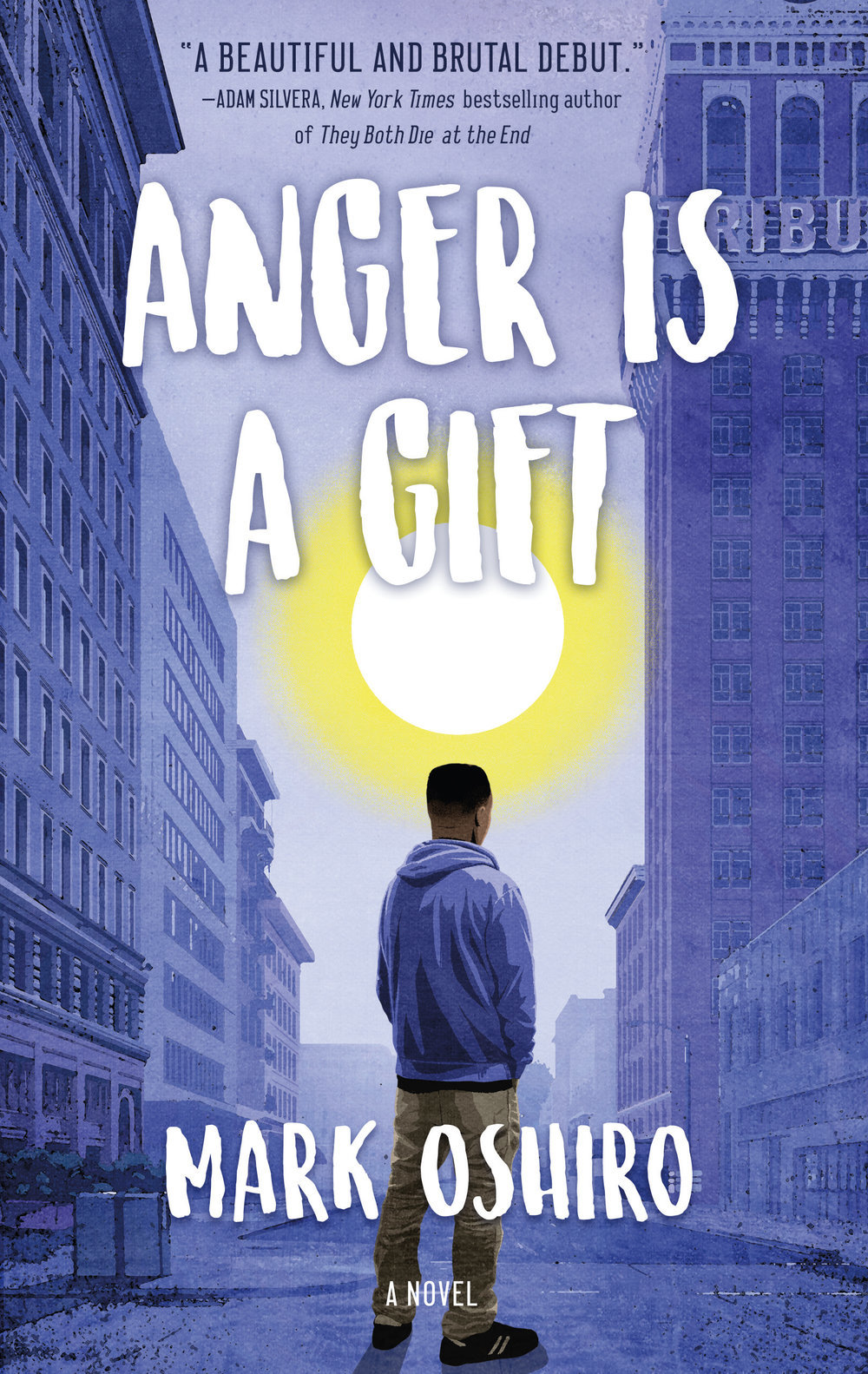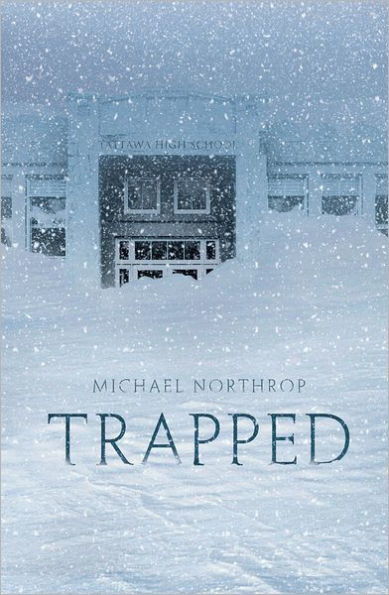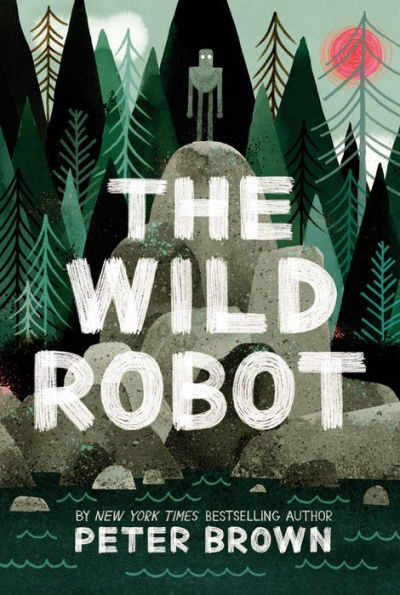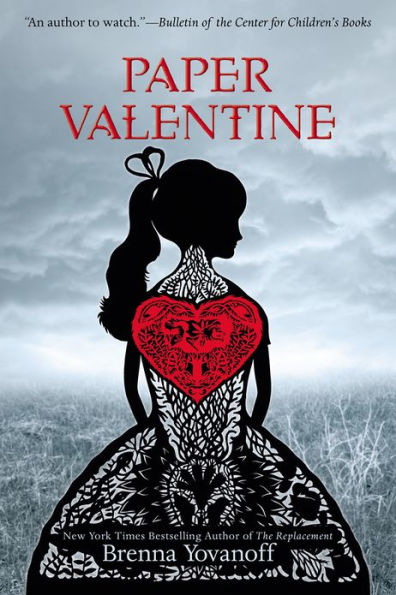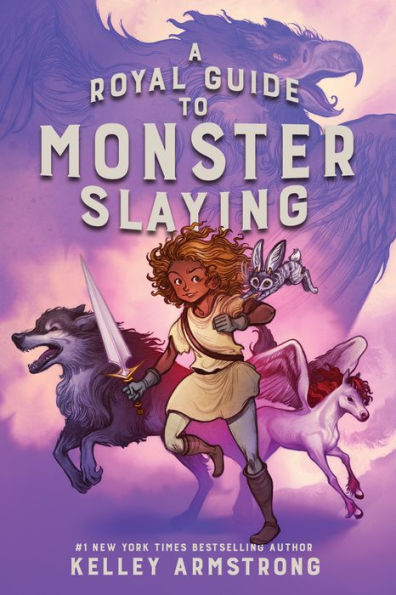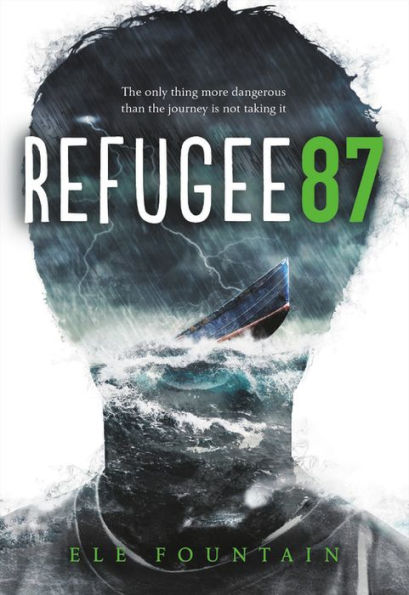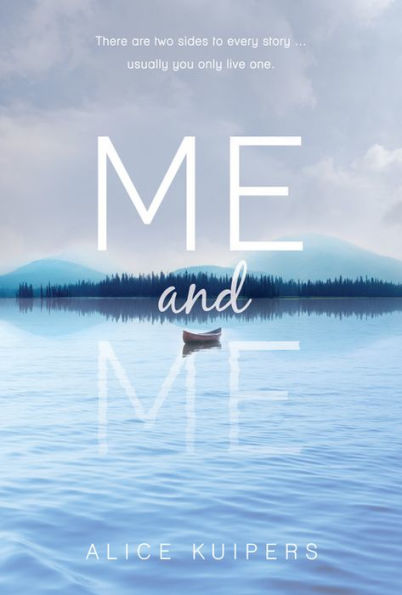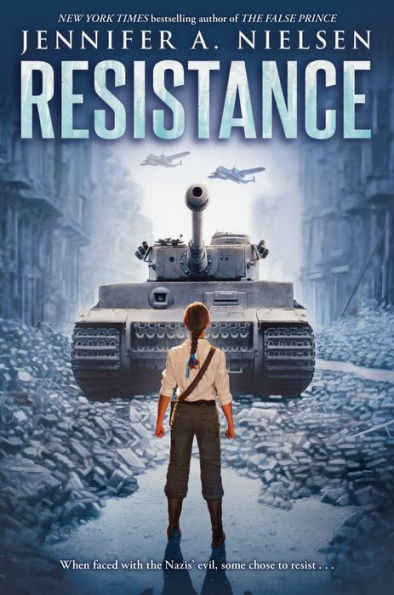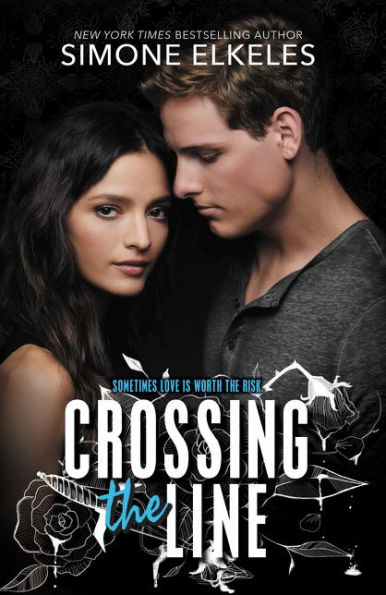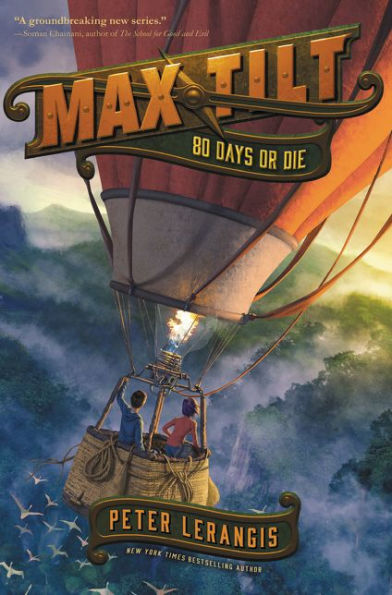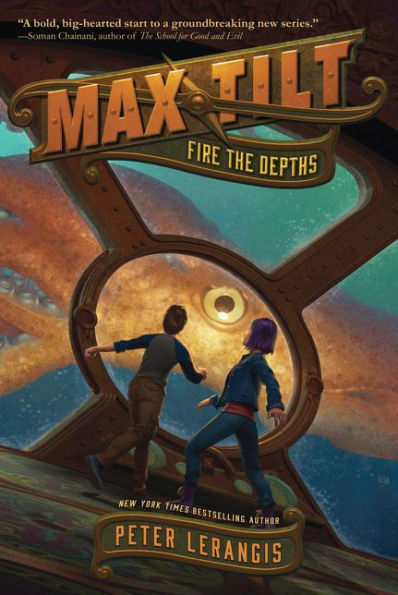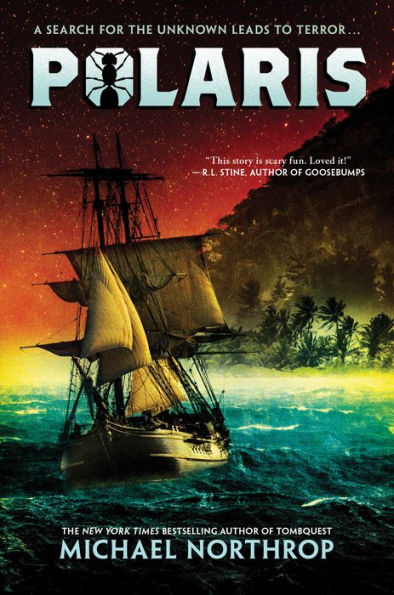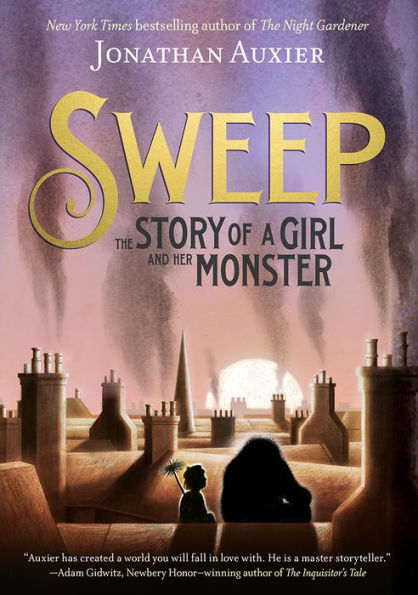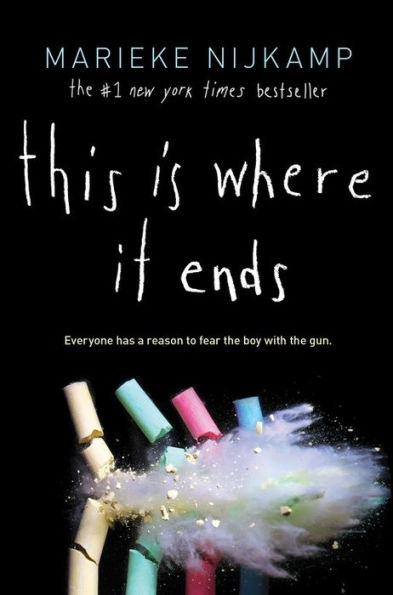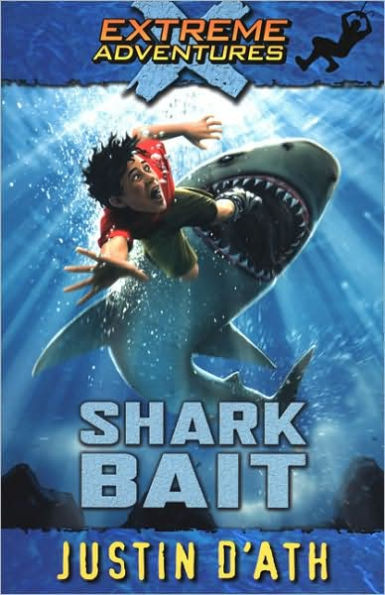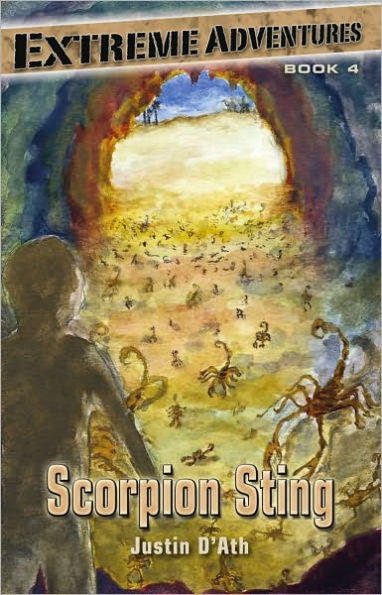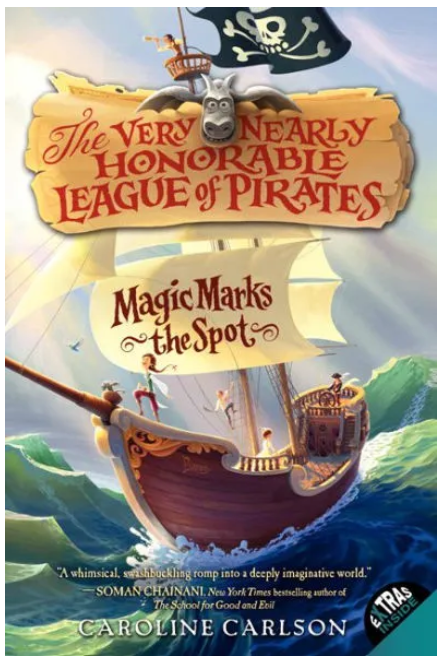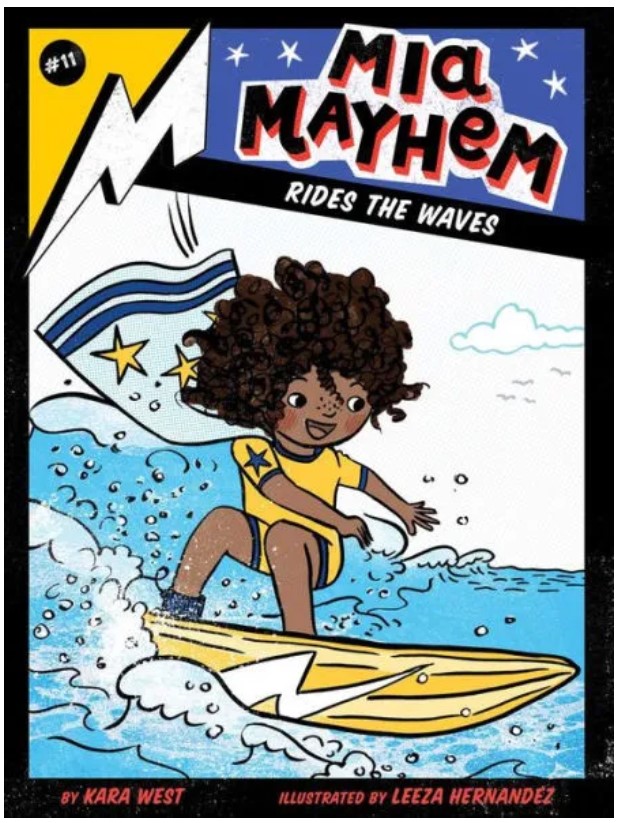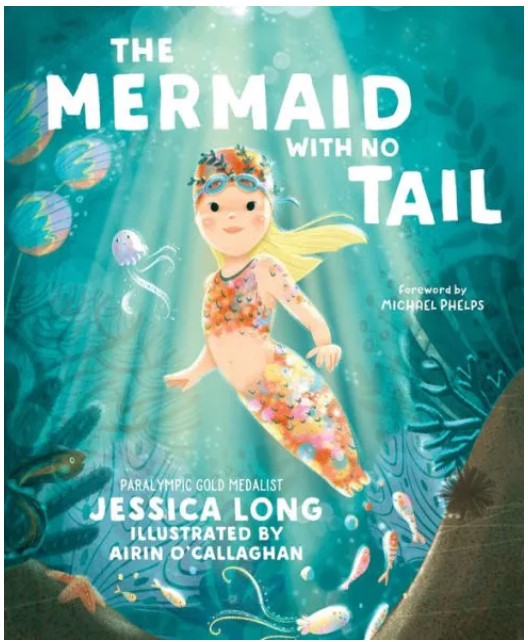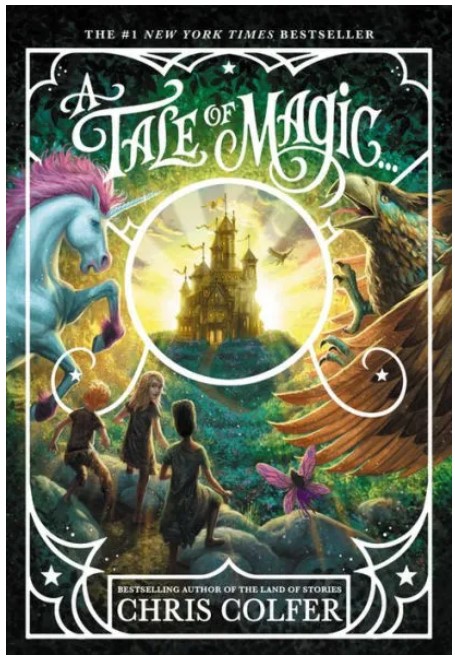Hansel and Gretel were once children who had to run away from their own scary story, but when they flee, they find eight other scary fairy tales that they must endure. As the children run, they encounter witches and warlocks, hunters with deadly aim, and a baker with ovens that are just right for baking children. . .
Gidwitz retells the fairy tale of Hansel and Gretel, plus expertly weaves pieces of other fairy tales into Hansel’s and Gretel’s story. Like the title suggests, Gidwitz’s version of Hansel and Gretel is both dark and grim. Many scenes are described in bloody detail, and there is no shortage of scary characters, including an evil witch, the moon, and the Devil. Parents and many adults are portrayed in a negative light, which is the main reason Hansel and Gretel continue to run away. They just can’t seem to find a family that has caring parents.
A Tale of Dark and Grimm describes a world full of terrible monsters, evil humans, and violent death. Readers who enjoy being frightened will want to jump into Hansel and Gretel’s fairy tale story. However, younger readers may be so frightened that they will crawl into their parents’ beds for many nights to come. This unique look at Hansel and Gretel will give readers a better understanding of the original fairy tales as well as add some surprising twists.
In the story, Johannes, a faithful servant, explains the importance of understanding others. He understood the king and queen in the “ancient sense. I understood. . . I planted my feet beneath them and took upon my shoulders their burden—their choice, their mistake, and their pain.” The story highlights the importance of forgiveness, but also acknowledges that a person may not be ready to forgive.
Throughout the story, the narrator breaks in and warns the reader about parts that may be upsetting. For example, Gidwitz writes, “if you’re feeling sick to your stomach because of all the blood, now’s a great time to stop.” The narrator’s voice adds humor as well as breaks up tense scenes. A Tale of Dark and Grimm is broken up into short, easy-to-read sections. A Tale of Dark and Grimm is highly entertaining, frightening, and at times humorous. Readers looking for a scary story will enjoy the Hansel and Gretel retelling and will cheer when the two children are able to defeat evil and finally return home.
Sexual Content
- The king sees his servant, Johannes, bent over the unconscious queen, “and with his two rotten teeth, bit her lip until he drew blood. Then ever so tenderly, the unhandsome man sucked three drops of blood from her lips with his mouth.” Johannes did this because a prophecy told him it was the only way to save the queen’s life, but the king didn’t know this and sentences Johannes to death.
Violence
- Johannes kills a horse because of a prophecy. Before the king could mount the horse, “Johannes slipped onto its back, drew a blade, and cut the horse’s throat, soaking its silken coat with warm, red blood. It collapsed to the ground in a heap.”
- The king sentences Johannes to death. “The executioner lit his torch and brought it to the pyre, its sparks leaping eagerly at the dry timer. . .” Before the king can kill Johannes, Johannes reveals the prophecy and “when he had, he turned to stone, from the core of his heart to the top of his head. And he died.”
- The king “beckoned Hansel and Gretel to his side, drew a sword from its place on the wall, and cut off their heads. Their lifeless bodies dropped to the floor.”
- A woman tries to cook Hansel. She puts him in the oven. “He was cooking. And he did smell just like a chocolate cake, because he had eaten so much of it since coming to the baker woman’s house.” Hansel tricks the woman into coming into the oven, and he is able to escape and lock the woman inside. “The baker woman began to sweat more. Her face was burning.” Hansel ignores her pleas and leaves with his sister.
- In order to open a door, Gretel “picked up a sliver of ice, as sharp as a knife, and brought it down on her middle finger, severing it from her hand. . . Gretel’s face was white and her voice trembled. . . She was bleeding swiftly from where the finger used to be, but she stood and walked, resolute and grim, to the door of the mountain.” She uses her finger to open the door.
- While living in the wild, Hansel acts like a wild beast. One day after killing a dove, he returned home. “Blood covered his arms and his face, and he carried in his hands the broken, eviscerated carcass of the white dove. . . Then he looked down at the dead bird. He noticed that his arms were covered in blood, and his shirt was stained with a mix of blood and berry juice.”
- A hunter sees Hansel, who looks like an animal-boy. The two stare at each other, and “there was a snap and a hiss like a snake. An arrow flew through the air—a straight, simple harbinger of death. Hansel watched it all the way to his chest, to exactly where his heart was. It buried itself there. He felt a searing bolt of pain and fell to the forest floor.” The hunter takes the beast-boy to town. “The huntsmen dug their knives into the beast’s skin just below the jaw and began to run their blades between the fur and flesh. Their hunting knives shone red as clumps of meat and animal hair stuck to their blades. . .” When they peel the skin back, they discover, “The blood-soaked form of a boy.” Gretel was freed from the body and given to a lord and a lady to care for.
- A man was playfully throwing Gretel in the air, when she hit a branch. “She cried out in pain. When he lowered her to the ground, red blood was running in a narrow rivulet down her face. Her forehead had struck the branch and left a deep cut just above the eyebrow. She was having trouble seeing out of her left eye through the steady stream of blood. . .” Gretel meets a man who, “Invites girls to his house, and he reaches down their throats and rips their souls from their bodies, and he traps the souls in cages in the form of doves, to let them rot under his eaves. Then he hacks the girls’ bodies to pieces to make our supper.” She watches as the man, “threw the girl on the oaken table, and from a nearby cupboard produced a filthy iron cage. Then he reached his hand into the girl’s mouth until his arm was buried deep in her throat. Slowly, painfully, and with great struggle from the girl, he pulled forth a beautiful white dove. . .” Gretel watched the man “hack the girl’s body into bits and toss each piece in the boiling cauldron. The blunt butcher’s knife rose and fell, rose and fell. He licked the blood from his hands and sent piece after piece sailing into the pot.”
- When Gretel tells the towns folk about a murder, “the young man leaped from his chair and began to chant the words of a dark curse, but before he could finish someone came up behind him and knocked him unconscious with a tray of sausages.”
- A dragon attacks a village. “At the end of that first day, one town was utterly gone, and hundreds and hundreds of people were dead.”
- The dragon comes back and attacks. “Its mouth opened wide and snapped down on a woman with a bow. She hadn’t even moved to defend herself. There hadn’t been time.” The dragon drinks wine that Hansel and Gretel left for him. When the dragon is drunk, Gretel hit it with an ax. “The dragon screamed. . . It pierced Gretel’s head like a spear.” The dragon chases Gretel, who scurries up a tree. “The dragon flew closer to Gretel. It snapped at her feet. Gretel could smell its hot, horrible breath; see the blood and the foam mingling between its long, sharp teeth; hear the beating of its enormous heart out of time with the beat of its enormous wings.” During a chase, Gretel “plunged the dagger into the dragon’s neck with all her might.” The dragon scene, which includes descriptions of the dead bodies, is described over 15 pages.
- Gretel discovers that her father was the dragon, and chops off his head. “Hansel’s sword took off their father’s head at the neck and sent it rolling across the floor and into a corner of the room. The king’s headless body fell on top of Gretel.” A baby dragon climbs out of the king’s body, and “Hansel flung himself at it, striking its skeletal body with his sword. One furious blow broke its back. The next decapitated it completely. . . He raised the sword and brought it down again and again and again, until the evil little creature was nothing more than a mess of black, pulpy pieces on the floor.”
Drugs and Alcohol
- Gretel sees a man who “Stood with the other men, drinking beer from a great mug and laughing about this and that.”
- A lord had a secret weakness—gambling. “At night, he would sneak out of the house and go to alehouses to gamble.”
- A village gives Hansel a gift—a cart filled with barrels of wine.
Language
- A raven said, “good god, that’s terrible!”
- The devil uses hell as a curse word three times. For example, when the Devil loses his glasses he asks, “Where the hell did I put them?” Another time Hansel, disguised as the Devil’s grandmother, pulls out a strand of the Devil’s hair. The Devil yells, “What in hell was that?”
- The Devil yells at his grandmother, “Damn it, Grandmother! Can you stop your infernal singing for one bloody instant?”
Supernatural
- Johannes’s stone statue tells the king how to save him. Johannes says, “You must cut off the heads of your children, and smear my statue with their blood. And then, and only then, will I return to life.”
- After the king smeared Johannes’s statue with blood, Johannes came alive. Then he, “placed little Hansel’s head back on his body, and little Gretel’s head on hers, and instantly they began to leap and play as if nothing had happened, and as if they were not covered in blood.”
- A man is upset with his sons and wishes “they would all just turn into birds and fly away” and they do. Later, they turn back into boys and return home.
- When Hansel is injured, a man uses a piece of magical twine to heal the wound. He took the twine, and “wrapped it around her head, so that it ran crosswise over the cut. . . And when he took the twine away and wiped the blood form Gretel’s face, she saw that the bleeding had stopped and that her head no longer hurt at all.” Later in the story Gretel uses the twine to heal someone else.
- Hansel travels to hell and jumps into the fire. “Pain. Greater pain than he could have imagined. Burning so terrible and unnatural that every inch of Hansel’s body screamed to get out of the fire. . .”
- The moon is alive and likes to eat children.
Spiritual Content
- The queen goes to church to pray. When she goes back to the castle, she told the king, “I can barely pray. I think only of Johannes and how we killed him.” After the queen agrees to kill their children, the king exclaimed, “Thank God you said that!”
- When Hansel and Gretel meet a woman who lives in a candy house and feeds them well, Hansel asks, “Do you think this is Heaven?” Gretel replies, “It must be Heaven.”
- A lord gambles with the devil. “If you gambled away to the devil. . . you are damned to excruciating pain for all eternity, no matter what you do, no matter how good you are, or how many times you ask, ‘Please pretty please with a cherry on top?’ the Devil will never, ever, let you out.”
- When a dragon attacks a village, a woman says, “My priest said it was once a man, but now he’s possessed by a dragon-spirit.”
- After the dragon attacks, the queen sees Hansel and Gretel. She runs to them and says, “Oh, thank God you’re safe!”
- The queen goes to the church to pray. When she returns, she tells her children, “Oh, I can barely pray. I think only of the dragon, and of our poor kingdom.”
